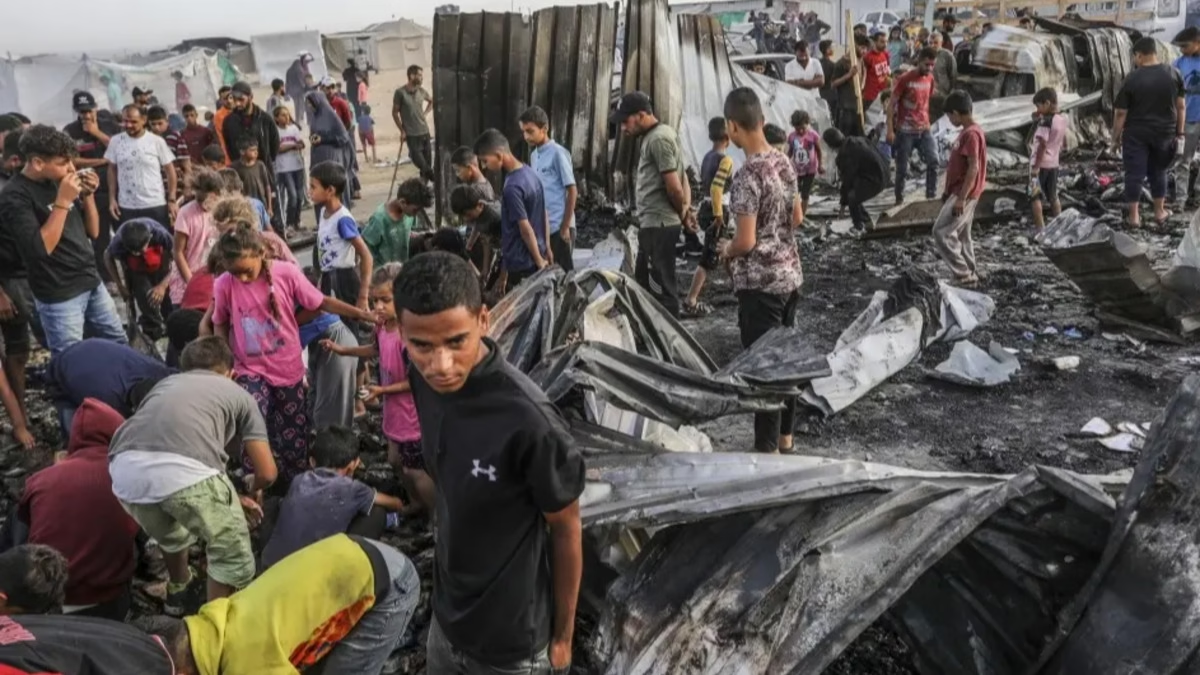Hopeless, Starving, and Besieged”: Israel’s Forced Displacement of Palestinians in Gaza | HRW
In the heart of Israel’s Negev desert lies a harsh reality: many Bedouin families are going hungry, but their pride often prevents them from asking for help.
For Hafez, a father of seven in the unrecognized Bedouin village of Wadi al-Na’am, food shortages have become a painful routine. “Since COVID-19, things have only gotten worse,” he says. “Especially when it comes to food.”
This isn’t just his story. A recent report by the Adva Center and the Negev Coexistence Forum sheds light on how food insecurity — once seen as temporary during the pandemic — has now become a chronic crisis, worsened by the war that began on October 7, 2023.
Living on Bread, Flour, and Dignity
The study, based on interviews with women from seven unrecognized Bedouin villages, reveals that many families rely on the bare minimum: bread, flour, and oil — if they’re lucky enough to get them.
“We couldn’t even leave the village to get food,” said Huda Abu Obaid, one of the report’s authors. “We had to deliver food ourselves — truckloads of flour and food boxes.”
Despite the report being published in March 2025, the situation hasn’t changed. In fact, for many families, it’s only gotten worse.
Why Don’t People Just Ask for Help?
The answer lies in culture and pride.
“We are Bedouins. We don’t say we don’t have food,” one woman explained. For men, admitting hunger is seen as a loss of honor. “We’d die of hunger before we’d say we’re hungry,” said Najib Abu Gharbiyeh, a community leader.
This pride runs deep. Even when help is available, many prefer to suffer in silence rather than be seen as dependent.
Forgotten and Off the Map
Wadi al-Na’am isn’t on most maps. The village, home to over 5,000 people, is technically illegal in the eyes of the Israeli government. Because it’s not officially recognized, it lacks basic services — no electricity, paved roads, public transport, or sewage systems. There’s even an electrical grid right next to the village, but they’re not allowed to connect to it.
“These villages aren’t even on the map,” said Abu Obaid. “It’s a problem the state created.”
The roots of this go back decades. After 1948, many Bedouins were forced to leave their land. Those who stayed were moved into specific zones and placed under military rule. Since then, their access to agriculture, livestock, and income has been stripped away.
No Infrastructure = No Food Security
Lack of infrastructure makes it impossible to store or transport food. Without fridges, freezers, or running water, even basic meal prep becomes a struggle.
“There’s no daycare for women to work. No roads to bring in food. No internet. No jobs,” said Dr. Shani Baron, another report author.
Even in recognized towns like Lakiya, public transport only arrived in 2008. Many women still face stigma when trying to use it. Without a car, getting groceries can be impossible.
And while the government says it’s working on development plans — like industrial zones or better transit — locals say these promises rarely become reality.
A Crisis Hidden by Pride
Many women hide the fact they receive food aid, even from their own husbands, fearing it might hurt the family’s dignity. Some quietly reach out to NGOs or local leaders, like the case of a divorced woman who asked for help in secret.
“They want to survive on oil and bread,” said Abu Obaid. “But pride alone won’t fix this.”
What Needs to Change?
The report recommends a government emergency food program that fits the realities of unrecognized villages: better food storage, fresh food access, and crisis plans. But deeper changes are also needed — recognition of these villages, investment in infrastructure, and support for local economies.
Without official recognition, these communities will remain trapped in poverty, hunger, and neglect.
As Abu Gharbiyeh puts it, “The state doesn’t care, and our own people have stopped caring too. Recognize our villages. Let us live with dignity.”
#FoodInsecurity #BedouinVoices #InvisibleIsrael #NegevCrisis #DignityNotCharity
